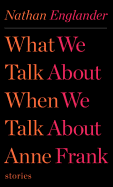I actually borrowed this audio book from my mother, for whom I had bought it about a year ago when I saw it on the bargain table at my bookstore. When I was visiting her over the Christmas hols I noticed that she hadn't listened to it yet, so I helped myself to it. Much as I love David Sedaris and Bill Bryson, I was growing a mite weary of re-listening to their audios on my daily commute, week in and week out.
The story turned out to be surprisingly satisfying, not least because Cassandra Campbell is a very good reader for this story. I did think that it was a touch over-long, and if I had been reading the physical book I definitely would have skimmed over a good bit of it, but despite that, I give it a solid recommendation.
There are two storylines that eventually come together; one is a modern day young woman named Julie Jacobs, an American who travels to Siena to track down a mysterious inheritance that her mother may have died trying to protect, and the other is the story of Giulietta Tolomei, whose doomed love for Romeo Mariscotti haunted 14th-century Siena and was the inspiration for Shakespeare's famous play. I far more enjoyed the earlier storyline, with its intrigues and betrayals, than the modern one, where Julie seems a little whiny and ineffective.
Medieval curses, hidden statues, lying scoundrels, mystical rites, horse races, precious heirlooms, family feuds, the Mafia, and yes, two pairs of star-cross'd lovers, all have their roles to play, and while most readers (or listeners) won't have much trouble guessing the various plot twists, there's no denying that this is a frolicsome book.
Now, of course, I have to plan a trip to Siena to visit all of the fabulous places described in such loving detail and I've got an unanswerable hankering to delve into more books with an Italian setting. It's been years since my one and only visit to that country and this book makes me yearn to return.
~Emily













